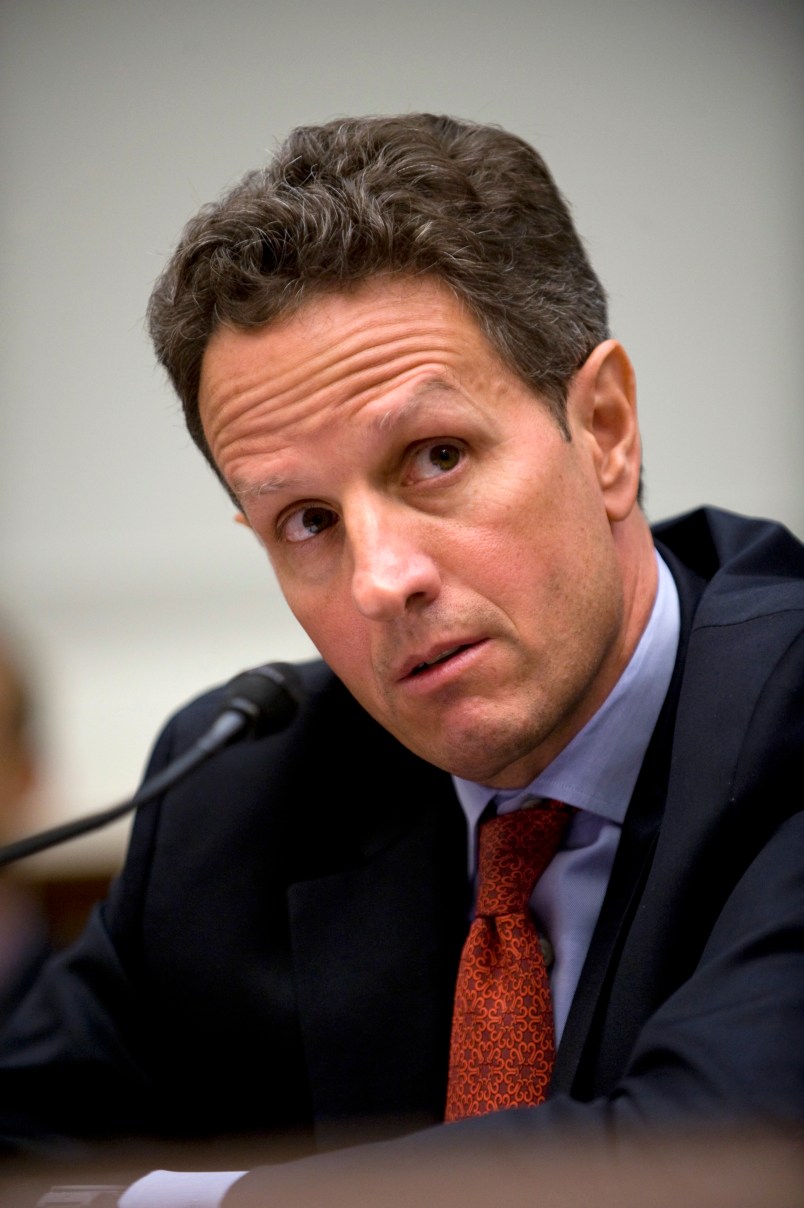There’s always a little wiggle room.
The Obama administration is telling Senate Democrats to ditch a measure in their financial reform bill that would create a $50 billion liquidation fund by assessing a fee on big financial institutions. The fund is intended to be used to cover the cost of winding down large firms, when they fail. According to the Associated Press, the administration would like the financial industry to cover the cost of liquidation after an institution has been dismantled.
Perhaps not coincidentally, this is a measure Republicans oppose, on the grounds, they say, that the mere existence of the fund will incentivize risk taking, and lead to more bailouts.
A few things to note: First, the administration has never liked this provision. Just this week, Treasury Secretary Timothy Geithner danced around that fact at a White House press conference. Second, it’s not a make or break issue with Senate finance principals. But there are Democrats who strongly support the provision and won’t be pleased to see it go.
Some Republicans, including Sen. Bob Corker (R-TN), once a key regulatory reform negotiator, have suggested that removing the provision would be a step toward gaining Republican support for the bill. We’ll have to see if that pans out. A spokesperson for Corker was not immediately available for comment.
Late update: Senate Minority Leader Mitch McConnell, on the other hand, applauds the move…and implies it’s just one of many concessions Democrats will need to make. “I appreciate the Obama administration’s recognition of the need to substantively improve this bill,” reads McConnell’s official statement. “And I hope we can work with them to close the remaining bailout loopholes that put American taxpayers on the hook for financial institutions that become ‘too big to fail.'”






